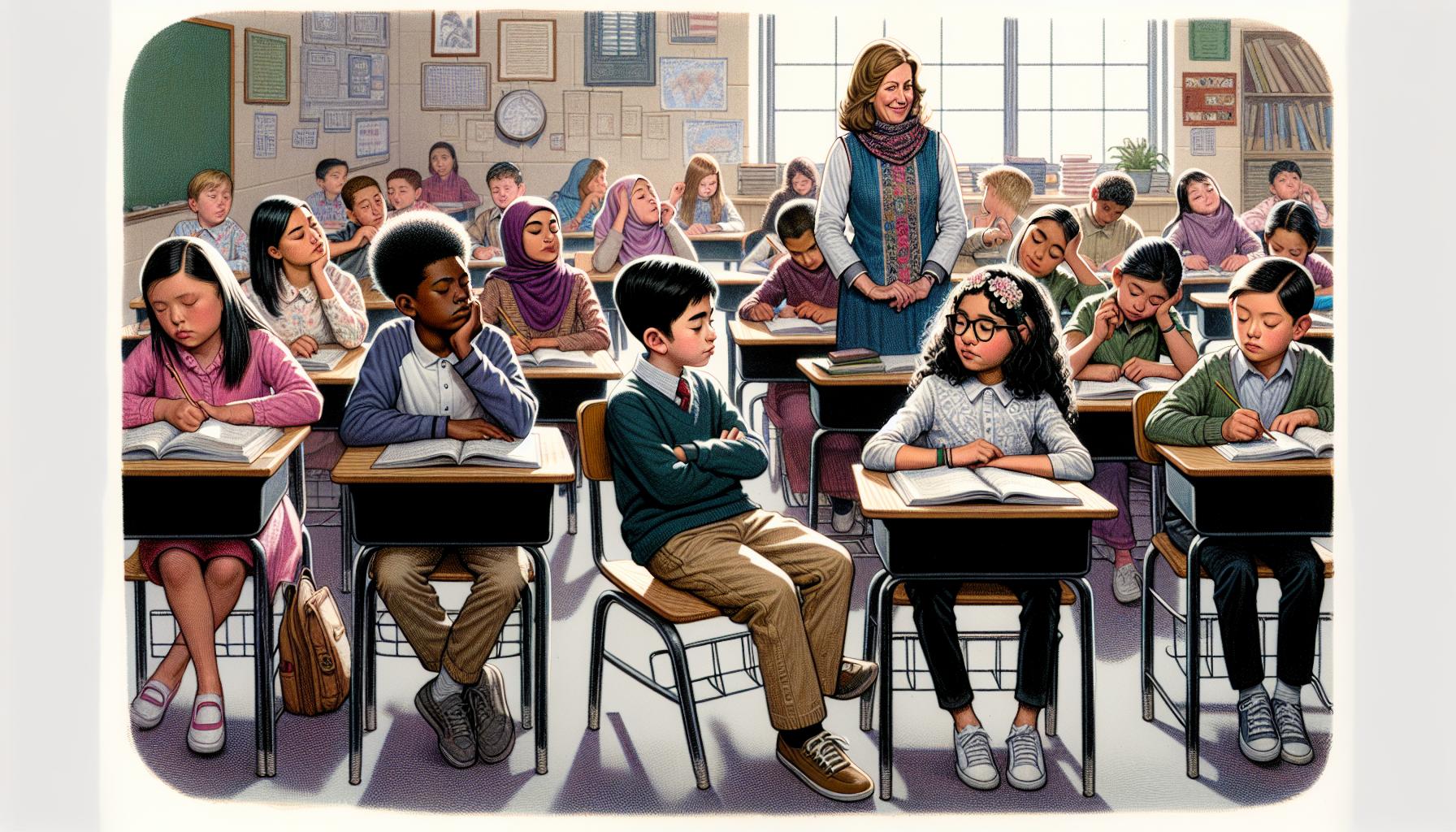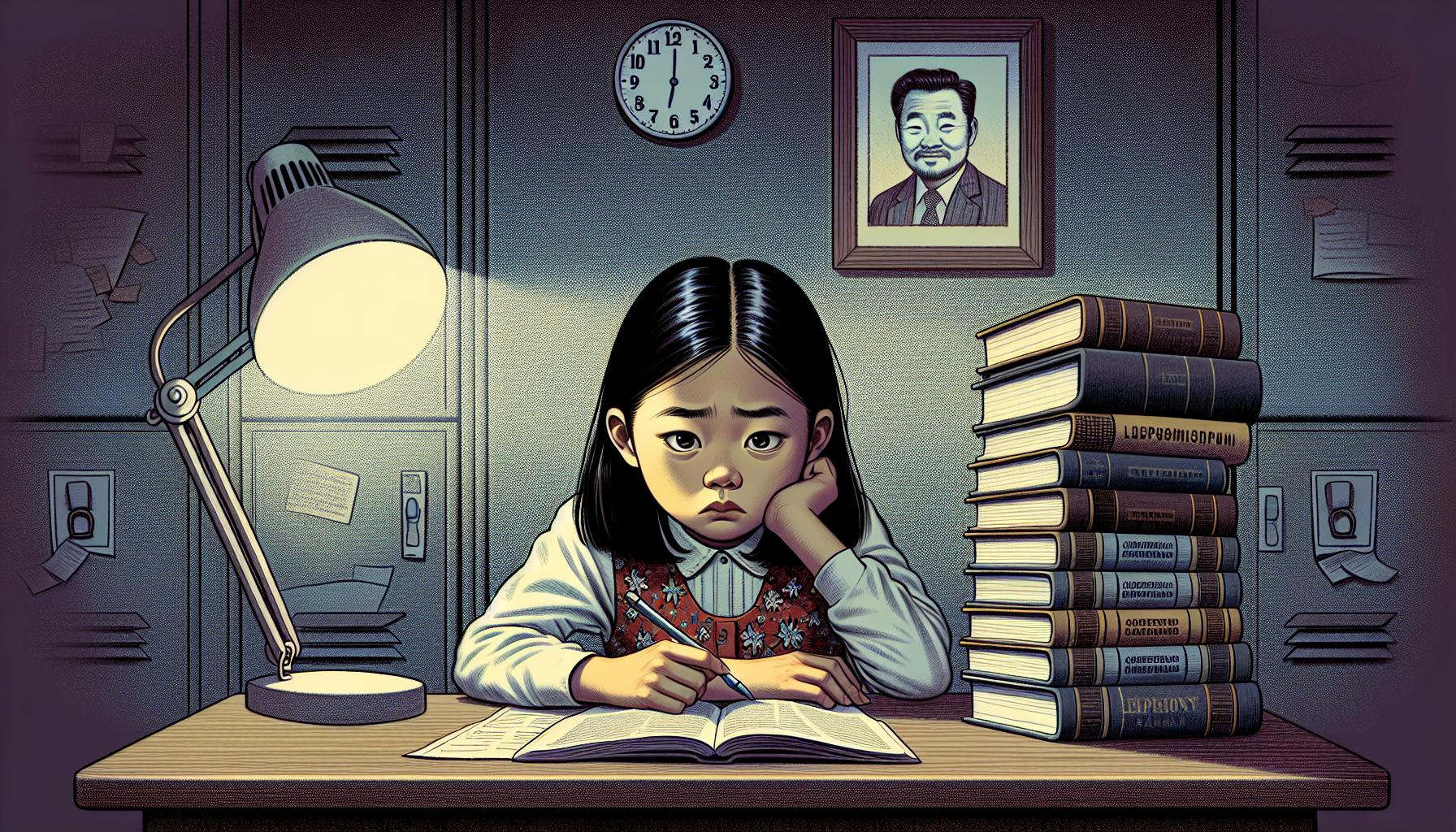I’ve often wondered why so many kids dread going to school. It’s supposed to be a place of learning, growth, and connection, yet for countless children, it feels more like a chore than an opportunity. The frustration, boredom, or even anxiety they associate with school isn’t just a passing phase—it’s a real issue that deserves attention.
When I think about it, the reasons behind this dislike are complex. It could be the rigid structure, overwhelming pressure to perform, or lack of engagement in lessons that don’t feel relevant. For some, it’s the social challenges or even the sheer monotony of the daily routine. Whatever the cause, it’s clear that understanding why kids hate school is the first step to making education a more positive experience for them.
Understanding The Question: Why Do Kids Hate School
Kids often express dislike for school for several interconnected reasons. Recognizing these factors helps identify systemic patterns and individual concerns contributing to their aversion.
- Rigid Structures
Traditional school systems rely heavily on fixed schedules and standardized processes. This inflexibility limits opportunities for personalized learning and self-expression, leaving many kids feeling restricted.
- Pressure To Perform
Academic expectations include tests, grades, and homework, which consistently elevate stress levels. Kids, especially those struggling to meet these demands, often link school with failure and anxiety.
- Lack Of Engagement
Uninspiring or outdated teaching methods reduce interest. When learning doesn’t connect to real-world applications or personal interests, kids lose motivation to participate meaningfully.
- Social Challenges
Navigating peer relationships can be difficult. Issues like bullying, exclusion, or peer pressure create emotional distress, impairing students’ ability to enjoy school.
- Monotony And Predictability
Repetitive routines without creative or stimulating breaks make schooldays monotonous. Limited variety in schedules often leads to boredom and disengagement.
Examining these core issues provides a foundation for addressing why kids dislike school environments. Recognizing their specific struggles is essential for creating more supportive educational systems.
Common Reasons Behind School Dislike

Many kids develop a dislike for school due to specific interconnected factors that influence their experiences. These factors often create a negative association with the learning environment.
Academic Pressure And Stress
Excessive academic demands often cause children to associate school with anxiety. High expectations for grades, constant assessments, and overwhelming homework create an environment where struggling students feel left behind. When children fear failure, their motivation and confidence decrease, making school an unpleasant experience.
Lack Of Engagement In The Classroom
Schools frequently rely on traditional teaching methods that fail to captivate students’ interest. Lessons may lack real-world applications or connections to personal interests, leading to boredom. Without interactive or stimulating activities, children struggle to remain attentive, which fuels their disengagement and negative perceptions of school.
Social Challenges And Bullying
Social interactions at school can be a significant source of distress. Bullying, exclusion, and peer pressure negatively impact students’ emotional well-being. When children experience isolation or hostility from their peers, they often feel unsafe or unhappy, making attendance daunting.
Strict Rules And Lack Of Freedom
Rigid policies and limited self-expression often frustrate students. Excessive rules, such as strict dress codes or restricted movement, create an environment that feels controlling rather than supportive. This lack of autonomy often erodes children’s enthusiasm, as they feel disconnected from their sense of individuality.
The Role Of Parenting And Society

Parenting styles and societal norms significantly impact how children feel about school. These external influences often shape a child’s perspective on education and their willingness to engage in learning.
Unrealistic Expectations
Parents and society sometimes place excessive pressure on children to excel academically. High expectations, such as obtaining top grades or excelling in extracurricular activities, can create feelings of inadequacy when goals are unmet. This pressure may lead children to associate school with stress and fear of failure. For example, emphasizing academic success over personal growth often discourages self-motivation and limits a student’s ability to enjoy learning.
Limited Support At Home
A lack of emotional or academic support at home creates additional challenges for children. When parents are uninvolved in a child’s school life or dismiss their concerns, students may feel isolated and reluctant to engage. For instance, environments where education is undervalued or ignored can diminish a student’s enthusiasm, especially if they lack encouragement to overcome struggles. Additionally, strained home dynamics can exacerbate negative feelings about school.
Potential Reforms To Improve Student Experience

Addressing the reasons children dislike school involves rethinking traditional educational methods. Implementing targeted reforms can enhance engagement, reduce anxiety, and make school a more positive environment.
Making Learning More Interactive
Interactive learning methods provide opportunities for hands-on experiences. Group projects, experiments, and technology-based tools, like educational apps or virtual simulations, can promote active participation. By connecting coursework to real-world applications, students see the relevance of their education, sparking curiosity and enthusiasm. Encouraging discussions and collaborative tasks can also build critical thinking and interpersonal skills.
Encouraging Emotional Support Systems
Strong emotional support systems alleviate stress for students facing academic or social challenges. Schools can establish programs that foster mental health, such as counseling services, peer mentorships, and stress management workshops. Educators trained to recognize emotional struggles can create more inclusive classrooms. Building a culture of empathy, where students feel heard and valued, reduces feelings of isolation and strengthens student-teacher relationships.
Introducing Flexible Curriculums
Flexible curriculums allow students to tailor their education to individual interests and strengths. Elective courses, self-paced learning options, and project-based assessments offer personalized pathways while maintaining academic standards. Reducing an overemphasis on standardized testing can lower performance pressure. A varied curriculum incorporating art, music, and vocational training ensures a well-rounded education that engages diverse learners.
Conclusion
Understanding why kids dislike school is crucial for creating environments where they can truly thrive. By addressing the root causes, such as rigid structures, academic pressure, and lack of engagement, we can work toward solutions that prioritize their well-being and foster a love for learning.
Every child deserves an education that feels meaningful, supportive, and empowering. With thoughtful changes in teaching methods, emotional support systems, and flexible curriculums, we can transform schools into spaces where students feel valued and inspired to grow.
Frequently Asked Questions
Why do many children dread going to school?
Children often dread school due to rigid schedules, academic pressure, unengaging teaching methods, and social challenges like bullying or peer pressure. These factors can make school feel stressful, monotonous, and emotionally draining.
How does academic pressure affect students?
High academic pressure, such as the focus on tests and grades, increases stress and anxiety. For struggling students, it can lead to feelings of failure and negative associations with school.
What role does a rigid school structure play?
Rigid schedules and standardized processes limit students’ ability to explore personalized learning. This lack of flexibility can frustrate children and suppress creativity and individuality.
Can social challenges impact a student’s attitude toward school?
Yes, issues like bullying, peer pressure, and exclusion negatively affect emotional well-being, making school an uncomfortable and undesirable environment.
Why are some lessons unengaging for students?
Lessons can be uninspiring if they lack real-world application or don’t align with students’ personal interests, leading to boredom and disinterest in learning.
How do parental and societal expectations affect children’s views on school?
Unrealistic expectations from parents and society create excessive pressure on children to excel academically, which can lead to stress, anxiety, and reluctance toward school.
What role does emotional support play in improving the school experience?
Strong emotional support systems, like counseling and peer mentorship programs, help alleviate stress and foster a nurturing and empathetic school environment.
How can school curriculums become more engaging?
Introducing flexible curriculums that emphasize hands-on learning, group projects, and tailored subjects based on students’ interests can make education more engaging and meaningful.
What alternatives to standardized testing can improve learning?
Reducing the emphasis on standardized testing and focusing on diversified learning methods, such as creative assessments or project-based evaluations, can encourage broader skill development.
How can schools help foster individuality and creativity?
Schools can empower students by creating opportunities for self-expression, promoting flexible learning paths, and reducing the enforcement of overly strict rules. This enhances creativity and individuality.
